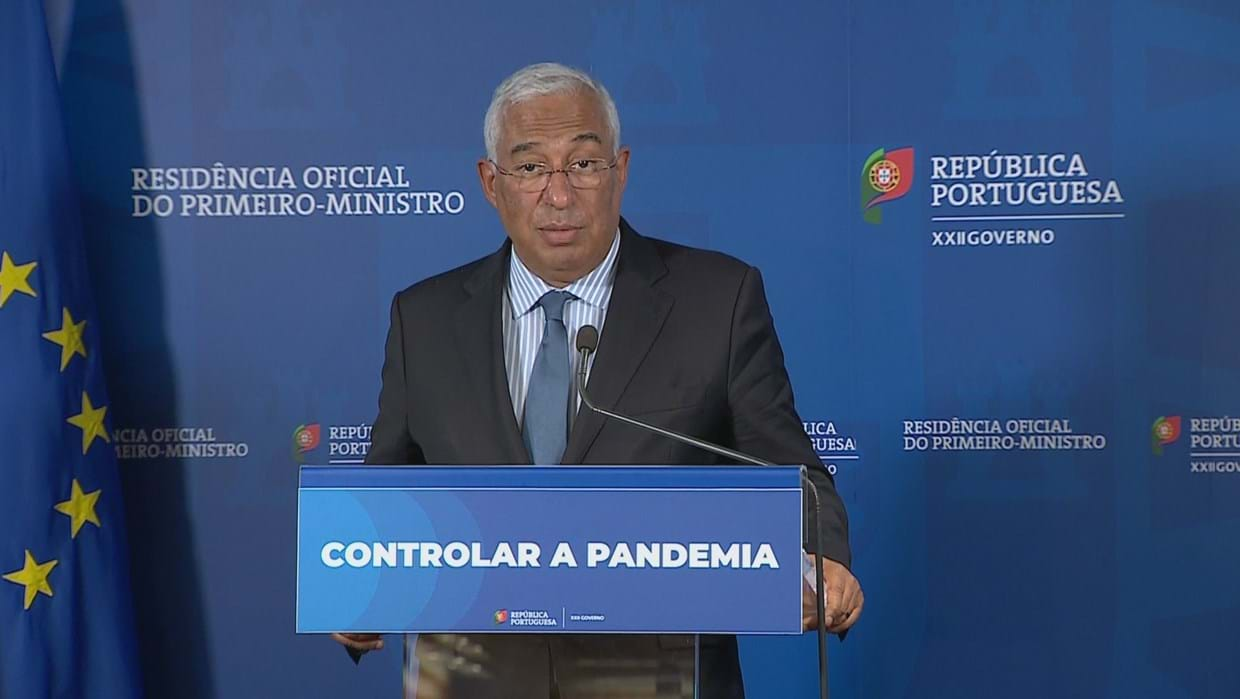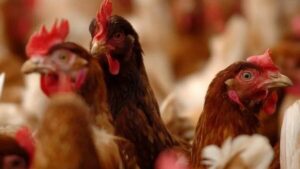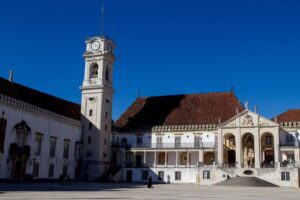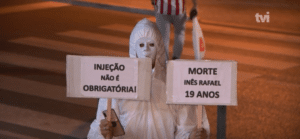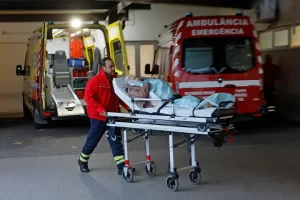7.1 million Portuguese in the 121 ‘Covid trouble-spot’ boroughs are to be ‘locked down’ from lunchtime on Saturday and Sunday for the next two weekends.
This is perhaps the ‘toughest restriction’ that emerged from last night’s Council of Ministers, which lasted roughly four hours.
Prime minister Costa then ‘addressed the nation’ in a 40-minute discourse explaining that the measures that emerged “are not as drastic” as they could have been.
“This is the phase in which we all have to make an extra effort, to try and control the pandemic. Now, like the President of the Republic has said, it is by making this effort in November that we win December” and have at least the possibility of “as normal as Christmas as possible”, he said.
The lockdown strategy – backed by nighttime curfews on circulation between 11pm and 6am the following day – is designed “so that (the country) does not return to a general lockdown”, which the prime minister has already said is ‘unthinkable’ from an economic point of view.
Thus the full list of restrictions starting on Monday have been presented as follows:
- The taking of temperatures in all public spaces
- Covid-19 testing in all health establishments, old people’s homes, schools, prisons and on entry and departure from national territory by air or sea.
- Preferential use of private and social health establishments. “At the moment we have by agreement 116 beds contracted by ARS-Norte (the regional health authority in the north) with the Fernando Pessoa Hospital, Trofa Hospital, CUF Porto and the Portuguese Misericórdia Union”, said Mr Costa, adding that the plan is to free hospital beds used currently by ‘social cases’ (patients who for whatever reason cannot return to their own homes for care, but who could be transferred to a non-hospital setting).
- Public sector workers who are ‘at home’ for reasons of prophylactic isolation or because they are in ‘at risk groups’ will be mobilised to support health professionals in efforts of contact tracing, and ‘the accompaniment and vigilance of people in confinement’. The idea here being that this ‘relieve pressure on health systems’. Among these ‘public sector workers’ will be Armed Forces military and non-assigned teachers.4
- Nighttime curfews in the 121 boroughs currently registering more than 240 infections per 100,000 inhabitants (or percentage equivalent): no circulation except for motives of work and/or health between the hours of 11pm and 6am the following day.
- “The next two weekends will see limitations between 1pm on Saturday to 5am on Sunday, and 1pm on Sunday to 5am on Monday” – meaning the 7.1 million inhabitants of the 121 boroughs will “only be able to go out on Saturday and Sunday morning”. Explained the PM, the “government recognises that social interaction has an influence on contagion”, and that contagion develops particularly during people’s leisure time. “Moments of great contamination” have been tracked to ‘the family context/ cohabitation’, said the PM, suggesting 68% of all contagions have occurred this way.
The weight of the looming weekend lockdowns will obviously impact seriously on commerce and restaurants/ bars as these “will not be able to receive clients” but “can continue to function as they did during confinement”, Mr Costa explained.
By this, he meant that restaurants can operate on a take-away basis ‘as long as clients pick up orders by 1pm’. Home deliveries however can continue, he said.
For a full list of the boroughs affected by the weekend lockdowns (click here). There is only one such borough, so far, in the Algarve: São Brás de Alportel (click here) bound by these new restrictions – but fears are that others may follow, particularly Portimão (click here).
Indeed, the review of the 121 boroughs in terms of how the virus is faring will come on Thursday, during the more habitual slot for Council of Ministers’ meetings.
Mr Costa warned last night during his speech that “there will be boroughs of the 121 that come off the list and others that will have to enter”.
He also alluded to the possibility of “even more restrictive measures” coming into force, highlighting Paços de Ferreira (in the north) where there remains “a very high incidence of Covid-19”.
The seriousness of Portugal’s situation is borne out by the number of patients being treated in hospital in comparison with numbers during what is now described as the ‘first wave’.
Said Mr Costa: “During the first wave we had 1,300 people in hospital, now we have 2,400”, with many more in ICUs than in the spring.

